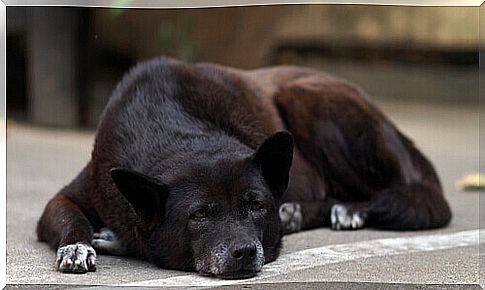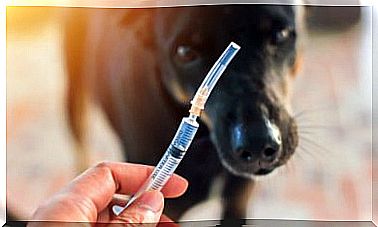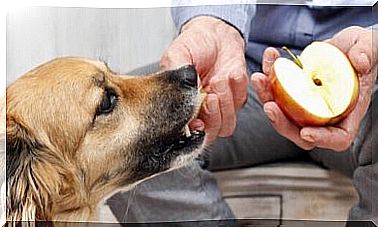Elderly Dogs And Cognitive Dysfunction Syndrome

They say there is nothing sadder than growing old. And unfortunately, everything gets old: us, things and our pets too. Watching how our dog consumes itself is not pleasant, but being well informed about the problems they may suffer is important to help them alleviate problems such as Cognitive Dysfunction Syndrome.
So, today we are going to talk about the Cognitive Dysfunction Syndrome in elderly dogs.
Cognitive Dysfunction Syndrome; what is it?
This disorder is more common in older or older dogs. According to studies, it appears to be caused by changes in nervous tissue, due to cell aging that takes place over the years.
The nervous tissue of dogs is extremely sensitive to free radicals and these cause aging, and even the death of neurons that take care of the most important tasks. The brain cannot create new neurons to replace the damaged ones, so the aging process takes place.
Due to all these changes in the brain and the lack of neurons, the animal begins to have behavioral changes that hinder a good quality of life, as well as the ability to interact with other dogs or even with their owners.
The symptoms
To find out if your dog may be suffering from Cognitive Dysfunction Syndrome, it is important that you know the symptoms of this condition. These are:
- Disorientation. A dog with this syndrome will wander around the house, tripping over everything, as if he doesn’t know the place, and possibly also have difficulty recognizing family members, neighbors or friends. On the street, even though it is a territory where he passes and knows, the disorientation will be even greater. One of the most obvious signs comes when they hide under a sofa or a table and cannot get out.
- Decreases interaction with other animals or people. If your dog has always been sociable and now seems like he doesn’t want to do anything, not even with you, that’s a sure sign he’s suffering from this disorder. He may show disinterest in affection and will not seek your attention as he did before.
- Changes in sleep. If they sleep too much during the day and too little at night, or sleep too little all day or too much, it’s a sign that something isn’t right and possibly it’s Cognitive Dysfunction Syndrome.
- Hygienic habits. If they start peeing around the house or defecating like they never did before or not asking to go outside when they need it, it’s because something isn’t working in their nervous system.
- Bark for no apparent reason, especially at night.
- Slow to obey orders that were simple for him before.
- They can no longer do those things they had learned, like sitting down or not eating food from the floor, etc…
- They feel confused when they have to do things that are routine, such as going to eat or sleep.
- Standing with your eyes lost and not moving is a clear sign of Cognitive Dysfunction Syndrome.
Treatment

Although it is a degenerative disease and there is not much that can be done to cure it, it can be improved with certain care. Treatment can help your pet to have a better quality of life if he suffers from Cognitive Dysfunction Syndrome.
- Nicergoline. It is a cerebral vasodilator that can increase your pet’s cognitive functions.
- Selegiline. Reduces dopamine deterioration.
Furthermore, the use of these substances can be alternated with natural products that can combat the effects of free radicals. These are:
- Vitamin C and E
- Selenium
- Coenzyme Q10
- lipoic acid
- grape seed
- Vitamin B11
- Omega 3
- Phosphatidylserine
Obviously, the fact that these substances help doesn’t mean that you don’t have to take your dog to the vet, to look for the best treatment.









